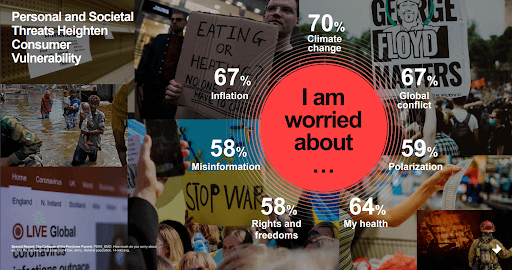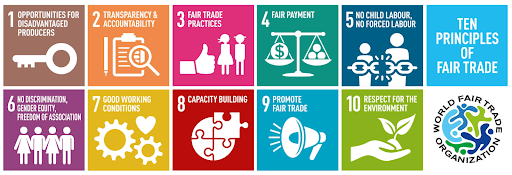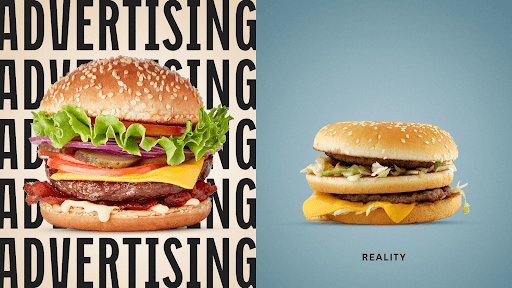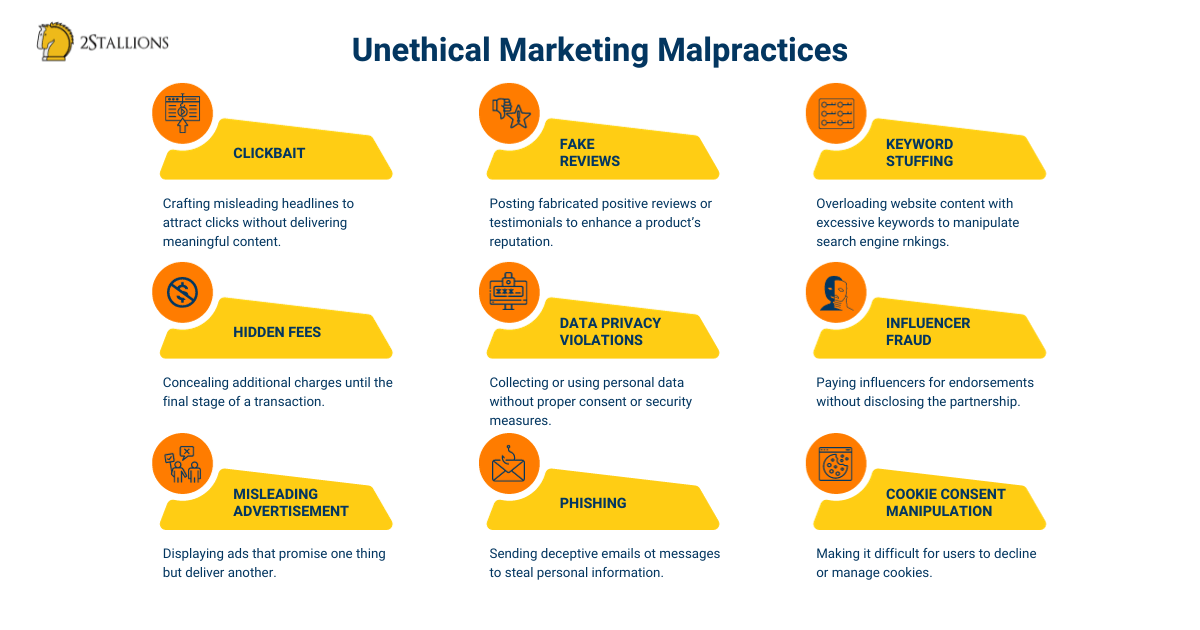Content
SHARE

In today’s eco-conscious age, the impact of our actions on the environment has become more important than ever. As marketers, we are responsible for ensuring that our digital marketing practices align with ethical standards.
Practising ethical digital marketing contributes to a sustainable future and helps build trust and credibility with consumers increasingly conscious of environmental issues.
This section will explore why marketers should prioritise ethical digital marketing in an eco-conscious age. We will explore the factors behind this shift in consumer mindset and discuss the benefits of adopting sustainable practices in our marketing strategies.
From reducing carbon footprints to promoting transparency and social responsibility, ethical digital marketing can create a greener and more sustainable world.
We will explore the importance of practising ethical digital marketing and discover how marketers can play a vital role in shaping a better future for businesses and the planet. Let’s dive into this topic together and uncover how we can make a positive impact through responsible marketing practices.
What Is Ethical Digital Marketing?
Ethical digital marketing involves promoting products and services online while adhering to responsible and sustainable practices, considering the ethical considerations and values of the target audience, particularly Gen Z and Millennials.
In an era where environmental issues such as climate change are of utmost concern, aligning digital marketing strategies with the values of these demographics becomes pivotal for businesses to cultivate trust and forge enduring relationships with their customers.

Their perspectives illuminate the amplification of personal and societal threats, accentuating consumer vulnerability and wielding significant influence over a trust-driven, consumer-centric purchasing approach.
Ethical Issues in Digital Marketing
Digital marketing faces several ethical issues that must be addressed. One of the main concerns is the collection and use of personal data for targeted ads. To ensure ethical practices, marketers should be transparent and respectful when collecting data, offering clear opt-in options and explaining how the data will be used.
Another issue is the environmental impact of marketing, with traditional practices often involving excessive resource use that contributes to waste and pollution.
Ethical digital marketing prioritises eco-friendly practices that minimise the carbon footprint and promote sustainability. The 2023 Edelman Trust Barometer Special Report emphasises that taking action on these issues can boost consumer trust and increase brand loyalty.
A study from Santa Clara University found that buyers under 50 respond favourably to salespeople who evoke feelings of trust, compatibility, and connectedness, while those over 50 prioritise business benefits and deliverables.
Ethical Marketing Practices

In the dynamic landscape of digital marketing, the importance of ethical practices cannot be overstated. As businesses engage with an increasingly discerning audience, adopting strategies that align with ethical principles is commendable and imperative. Let’s explore some key ethical practices that digital marketers can implement to build trust, foster positive connections, and resonate with the values of modern consumers.
Incorporating Digital Climate Messaging
A noteworthy approach to ethical digital marketing involves incorporating digital climate messaging. This strategy resonates strongly with the environmentally conscious Gen Z & X demographics. Weaving messaging that communicates a commitment to sustainable practices and environmental responsibility, brands create a powerful connection.
This connection goes beyond the transactionally, aligning with the values that matter most to these generations. As climate change takes centre stage, this strategy positions brands as responsible global citizens and allies in the fight for a sustainable future.
Transparency Is The Pillar Of Trust
Transparency has emerged as a cornerstone of ethical marketing. Brands that embrace transparency lay a foundation of trust that is indispensable in the digital realm. Today’s consumers, especially Gen Z and millennials, are digitally adept and well-informed.
They value honesty and authenticity. When brands are forthright about their products, services and intentions, they bridge the gap of understanding between themselves and their audience. This transparency enhances credibility, fosters goodwill, and cultivates lasting relationships based on trust.
Inclusivity Beyond Transactional Engagement
Inclusivity is not just a buzzword, it’s a transformative practice in ethical marketing. Brands that create content and campaigns inclusive of diverse audiences reflect a commitment to equality and unity.
This approach resonates deeply with modern consumers who expect brands to mirror their values. As societies become increasingly diverse and interconnected, promoting inclusivity aligns with the evolving ethos of equality and acceptance. Gen Z and millennials, susceptible to these issues, are more likely to support brands that embrace inclusivity.
Consent-based Marketing
Respecting privacy is a vital ethical principle in the digital age. Consent-based marketing ensures that brands engage with consumers on their terms. By obtaining explicit permission before using personal data for marketing, brands demonstrate respect for individual autonomy.
This approach addresses data privacy and cybersecurity concerns and showcases a brand’s commitment to responsible data management.
Sustainability As A Shared Responsibility
Sustainability is a driving force that resonates deeply with consumers across generations. Brands prioritising sustainability contribute to a better world and connect with modern consumers’ values.
Prominent brands like Adidas, H&M and IKEA have taken the lead in advocating for sustainable practices. From adopting environmental, social, and governance (ESG) reporting to aligning with the United Nations Sustainable Development Goals, these brands set an example by transparently tracking their impact and demonstrating commitments to sustainability.
Building Relationships Through Engagement
In the digital era, engagement is more than a metric. It’s a pathway to building meaningful relationships. Brands that foster open dialogue with their audience create an environment of trust and mutual understanding.
The digitally literate Gen Z and millennial generations appreciate brands that communicate openly, rationally, and empathetically. Engaging in two-way conversations enables brands to address queries, concerns and feedback, fortifying relationships based on authenticity and openness.
Avoiding Unethical Digital Marketing

Upholding ethical standards in marketing is a moral imperative for building sustainable consumer relationships. Unethical marketing practices tarnish a brand’s reputation and carry significant consequences in the digital realm. Search engines and marketing platforms are increasingly vigilant about penalising unethical behaviour.
Engaging in keyword stuffing, link manipulation, or content scraping can plummet search engine ranking, reducing online visibility and credibility. These penalties can range from reduced visibility to complete de-indexing, rendering a business virtually invisible to potential customers.
Software tools used in digital marketing also play a role in enforcing ethical practices. Many email marketing platforms and social media sites have mechanisms to detect spam, fake engagement, and misleading content. Violations can lead to account suspension, restricting a brand’s ability to reach its audience. In an era where authenticity and transparency are valued more than ever, businesses must prioritise ethical marketing practices to thrive in the digital landscape and forge enduring connections with their audience.
 Challenges in Implementing Ethical Digital Marketing
Challenges in Implementing Ethical Digital Marketing
Implementing ethical digital marketing practices comes with its fair share of challenges. One of the primary challenges is addressing ethical issues in market research and data collection. Digital marketers must ensure that the data they collect is obtained ethically and used responsibly, respecting the privacy and consent of the individuals involved.
Market research & data collection
Market research and data collection can be ethically challenging because it involves collecting personal information. Digital marketers must take steps to protect the privacy of individuals and obtain their consent before collecting any data. This includes providing clear opt-in options and explaining how the data will be used.
Truthful branding and marketing
Truthful branding and marketing are critical aspects of ethical digital marketing. Companies should avoid making false or misleading claims about their products or services. Transparent and honest communication builds trust with consumers and ensures ethical business practices.
Ethical digital advertising
Digital advertising should adhere to ethical principles to avoid misleading consumers. This includes avoiding clickbait, deceptive advertising, and spamming. Companies should focus on delivering valuable content that genuinely addresses the needs and interests of their target audience.
How Ethical Companies Gain an Edge In The Digital Market
Ethical companies are gaining a competitive edge as Gen Z and Millennials become more significant consumers. These demographics seek out brands that align with their values and are willing to pay a premium for sustainable and ethical products and services. Businesses prioritising ethical digital marketing can tap into this growing market segment and establish themselves as leaders in the industry.
Ecosia – “A Better Planet With Every Search”

Ecosia stands out with its unique and inspiring ethos: “A better planet with every search.” While search engines are typically associated with information retrieval, Ecosia has embarked on a mission that extends beyond the digital realm and directly impacts the environment.
The core principle behind Ecosia’s operations is the dedication to reforestation. With every search conducted through their search engine, the Ecosia community takes a tangible step towards environmental preservation. How does this work? Behind the scenes, Ecosia allocates a significant portion of its advertising revenue to fund tree-planting projects across the globe.
This innovative approach transforms digital interactions into real-world actions. Users who search for information inadvertently become contributors to a greener planet, one query at a time. Ecosia’s commitment to sustainability underscores a profound truth that even digital entities can actively address environmental challenges. Millions of trees have been planted in reforestation projects ranging from rainforests to arid landscapes while users engage in their daily online activities.
Patagonia #WornWear #BetterThanNew

Yet, Patagonia’s mission goes beyond words. Their recent campaign, the #WornWear movement, addresses fast-fashion concerns and the era of excess. @wornwear serves as a platform to mediate the campaign by enticing customers to embark on a different journey with their beloved Patagonia gear.
The concept is simple: trade in your used and worn Patagonia items and receive a credit. The campaign swears by “buy less, choose well, make it last.” The traded-in items are hand-sorted, professionally cleaned, and offered anew through the Worn Wear platform. The brand reminds consumers that we have the choice and power to reshape our consumption in the never-ending consumerism.
The Future of Ethical Digital Marketing & Consumer Demands
In conclusion, the future of ethical digital marketing is closely intertwined with the increasing consumer demand. As consumers become more conscious and informed about their choices’ impact, they seek brands that align with their values and promote ethical practices.
This shift in consumer behaviour presents a unique opportunity for marketers to adapt their strategies and embrace ethical digital marketing practices. By prioritising transparency, authenticity, and social responsibility, brands can build trust and cultivate long-term relationships with their target audience.
Furthermore, as technology evolves, marketers must stay ahead of the curve and leverage innovative tools and platforms to deliver personalised experiences while respecting consumer privacy. This includes responsibly utilising data, obtaining proper consent, and providing clear options for opt-out.
Ultimately, the future of ethical digital marketing lies in understanding that consumers are not just passive recipients of advertising messages but active participants who can shape brand narratives. Marketers can create meaningful connections that resonate more deeply by listening to their needs and preferences.
In summary, embracing ethical digital marketing practices not only meets the demands of today’s consumers but also paves the way for a sustainable future where brands can thrive while positively impacting society.

 Challenges in Implementing Ethical Digital Marketing
Challenges in Implementing Ethical Digital Marketing










